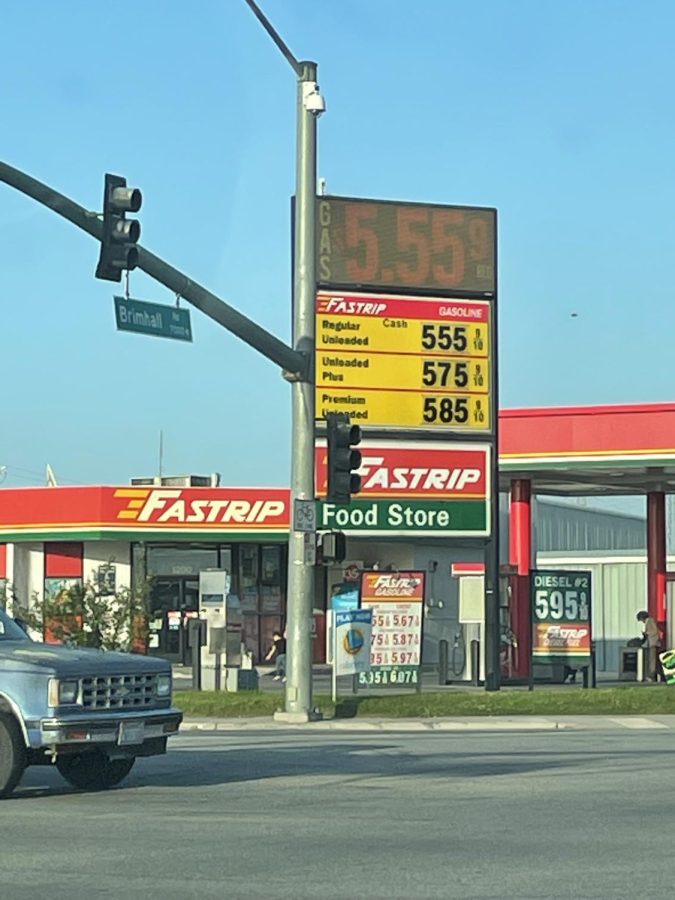Rising Gas Prices Continue to Plague the Nation
Photo provided by Ashely Soren Photo taken on April 3, 2022 of gas prices at the gas station on Brimhall and Coffee Road.
April 9, 2022
Motorists all throughout America have been feeling the pain of high gas prices lately with no reprieve in sight. Rising gas prices have been harsh as of late, with gas prices averaging at $5.85 in California according to the American Automobile Association website. Ever since the invasion of Ukraine by Russia, gas prices have sky-rocketed from their starting prices in 2022.
These price changes have been harsh on CSU Bakersfield students who commute to their classes. Originally, I would pay roughly $50 to fill up my own tank before the increase in price, and now I pay about $70 for the same number of gallons. CSUB student Michael Summers, who drives a Toyota Tundra, states that he pays about $100 to completely fill up his truck, whereas he usually paid $60 before the price change. It is important to note that these two examples are from students who live in Bakersfield, and that there are many other students who commute to campus from towns like Delano and Shafter. Students who must commute from these outside cities suffer the most, with some students having to drive up to 30 miles or more to make it to class.
These gas prices are outrageous and unfair to all citizens, whether they be students or not. I believe that aid should be distributed to motorists throughout the country, especially those who are not as financially stable. Luckily, relief is being developed and on its way for California residents. Taryn Luna from the LA Times writes that State Governor Gavin Newsom is introducing “A new $11-billion-dollar proposal” that would “send $400 to Californians for each registered vehicle.” However, there are limits and loopholes in this proposal. Citizens with a single vehicle, but with multiple names registered to it, can only receive up to $800, whereas citizens who own multiple vehicles with different names registered to them will not deal with the $800 cap. While I believe this bill to be a step in the right direction, I feel that it won’t truly help those who are less financially stable. Instead of basing payments and caps on the numbers of registered names on a vehicle and the vehicles themselves, I believe it should be based on a household’s total income instead.
CSUB should also work on aiding its own students as well. For example, professors could offer alternatives to coming to class physically. Classes could be operated in a hybrid format, with some students being over Zoom and some being in the classroom. This would allow students who live further from campus to save money on gas in the meantime, it might be better for students to commute to campus in other ways, such as by bus or bike. While it does seem like rising gas prices will continue to plague the country for a while longer, there are solutions that can help ease the pain.







